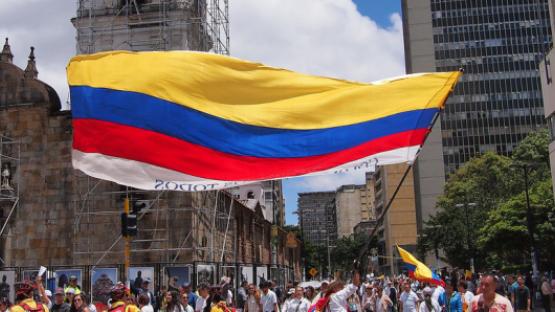Colombia’s UPR is an opportunity to improve the protection of the right to privacy

On 10 May 2018, Colombia’s human right record will be reviewed as part of the 30th session of the Universal Periodic Review (UPR), under the auspices of the Human Rights Council, which provides the opportunity for each State to declare what actions they have taken to improve the human rights situations in their countries and to fulfil their human rights obligations.
Colombia is at an important turning point in its history as it transitions from four decades of conflict. This provides a unique opportunity for the government of Colombia to assess and reinforce its commitment towards protecting the fundamental rights of Colombians.
Dejusticia, Fundación Karisma and Privacy International see this as the perfect context for the government to address and rectify its current shortcomings when it comes to protecting the right to privacy as upheld by Article 17 of the International Covenant on Civil and Political Rights (ICCPR).
The review of Colombia next month is an opportunity to get an update on if and how Colombia has addressed and implemented the recommendations submitted by the Human Rights Committee in 2016 in relation to the inadequacies of the current legal and regulatory surveillance framework of both law enforcement and intelligence agencies.
This legal and regulatory void is concerning given reports of unlawful surveillance of human rights defenders and journalists. Most well-documented examples include the unlawful surveillance telephone lines of the Association of Families of the Detained Disappeared (Asfaddes) by the Units of the Colombian Army (GAULA), the unlawful interception of the communications of employees of the Jose Alvear Restrepo Lawyers’ Collective (CCAJAR) and their families as well as the targeted surveillance of an estimated 600 public figures including parliamentarians, journalists, human rights activists and lawyers, and judges among others.
These are all issues which were presented in our joint stakeholder report in addition to concerns around the acquisition and deployment of intrusive surveillance technologies, the absence of effective independent oversight and transparency of intelligence agencies, mass data retention policies as well as other government initiatives which enable surveillance such as blanket data retention and the registration of cell phones.
We would also like for the review to open up the discussion of privacy-related issues within the peace process including the protection of sensitive databases related to the Peace Agreement such as the registration of all formal and informal social organisations and movements but also the need for transparency of intelligence archives in order to be able to determine human rights violations committed during the armed conflict, including the use of unlawful methods of surveillance or illegal processing of personal data by the intelligence agencies.
The review of Colombia will offer an opportunity to raise these concerns to the Colombia government, and to assess them against compliance of the current Colombia laws, policies and practices with the ICCPR and could provide useful guidance to inform the Colombia government authorities on the measures needed to effectively protect the right to privacy, particularly in this unique historical process.
Our joint submission on ‘The Right to Privacy in Colombia’ is available in English and Spanish, and for further information on the state of privacy in Colombia in terms of regulation, law and practice, we invite you to check out the country briefing, ‘The State of Privacy’.
This post is available in Spanish.
To follow the next steps on social media use #UPR30 and follow:
@privacyUN
@privacyint
@Karisma
@Dejusticia



